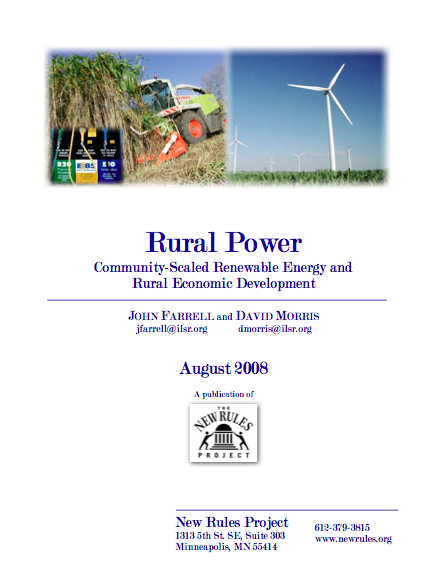The essential comparative advantage of rural areas is open space. Some communities take advantage of their scenic natural resources. Others tap into their mineral wealth by drilling or mining. Many have economies based on the cultivation of soil. A new and rapidly emerging economic foundation for rural America is the harnessing of renewable energy in its various forms: wind, sunlight, and biofuels.
The wind energy industry is growing by 25 percent a year, the biofuels industry by 20 percent. Both are projected to expand three to six times in the next 12 years. These multi-billion dollar industries have already had a significant impact on rural America. Partly as a result of the increased demand for biofuels, for the first time in a generation farmers can make a living selling their crop without government payments. Thousands of landowners are receiving significant revenue from leasing their wind energy rights to developers who use only a tiny fraction of their land and many landowners own their wind turbines outright.
Harnessing renewable energy can dramatically improve the economic prospects of many rural areas. But new rules are needed to maximize the economic and social benefits from these new industries, policies that go beyond more, to demanding better. Current federal incentives largely enable a highly centralized and absentee owned renewable energy industry concentrated in relatively few states.
The federal government, states, and rural communities should redesign these policies to encourage a highly decentralized and dispersed renewable energy industry that is significantly locally owned. Doing so would multiply the number of rural areas that benefit from burgeoning renewable energy industries, and would create a sustainable asset whose wealth and revenue will largely remain in revived local communities and regions.
This report examines the current impact of renewable energy on rural communities and identifies existing and potential policies that could dramatically expand the economic benefit this new sector can bring to these communities.



